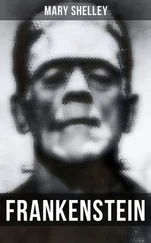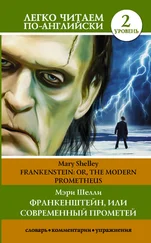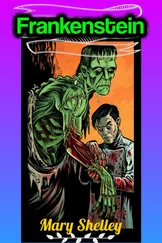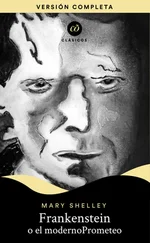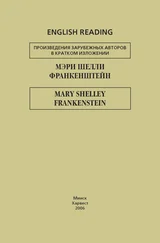Mary Shelley - The Fortunes of Perkin Warbeck
Здесь есть возможность читать онлайн «Mary Shelley - The Fortunes of Perkin Warbeck» — ознакомительный отрывок электронной книги совершенно бесплатно, а после прочтения отрывка купить полную версию. В некоторых случаях можно слушать аудио, скачать через торрент в формате fb2 и присутствует краткое содержание. Жанр: unrecognised, на английском языке. Описание произведения, (предисловие) а так же отзывы посетителей доступны на портале библиотеки ЛибКат.
- Название:The Fortunes of Perkin Warbeck
- Автор:
- Жанр:
- Год:неизвестен
- ISBN:нет данных
- Рейтинг книги:3 / 5. Голосов: 1
-
Избранное:Добавить в избранное
- Отзывы:
-
Ваша оценка:
- 60
- 1
- 2
- 3
- 4
- 5
The Fortunes of Perkin Warbeck: краткое содержание, описание и аннотация
Предлагаем к чтению аннотацию, описание, краткое содержание или предисловие (зависит от того, что написал сам автор книги «The Fortunes of Perkin Warbeck»). Если вы не нашли необходимую информацию о книге — напишите в комментариях, мы постараемся отыскать её.
The Fortunes of Perkin Warbeck — читать онлайн ознакомительный отрывок
Ниже представлен текст книги, разбитый по страницам. Система сохранения места последней прочитанной страницы, позволяет с удобством читать онлайн бесплатно книгу «The Fortunes of Perkin Warbeck», без необходимости каждый раз заново искать на чём Вы остановились. Поставьте закладку, и сможете в любой момент перейти на страницу, на которой закончили чтение.
Интервал:
Закладка:
"You speak unwisely and unknowingly of things you wot not of," said Madeline, alarmed at the meaning glance of Frion; "good nephew, Perkin, your eyes see not even the English white cliffs, much less can your mind understand its dangerous policy."
"Nay, dear mother," remarked her little daughter, "you have told me that the noble Earl and the good Lord Lovel had been kind guardians to my cousin Peterkin; you chid him not when he wept their death, and you may suffer him to reproach their foe."
"I know nothing of these lords," said Frion, "whose names are a stumbling block to a Frenchman's tongue. But methinks it is well for us that they aim at each other's hearts, and make booty of their own provender, no longer desolating the gay fields of France with their iron hoofs."
And now, since that he had found him whom he sought, Frion talked again of other matters, and, as before, his smooth and gay discourse gained him pleased auditors. At length the peaceful cottagers retired to rest, and Frion sunk to sleep under their hospitable roof, after he had thought of various plans by which he might possess himself of the prince's person;—the readiest and safest way was to entice him to accompany him alone some little space, no matter how short; he trusted to his own skill to draw him still further and further on, till he should be put on board the boat that would ferry him to his own revolted England.
Chapter
9
In the high chamber of his highest tower
Sate Conrad, fettered in the Pasha's power.
—BYRON.
Gilderoy was a bonnie boy.
Had roses tull his shoone;
His stockings were of silken soy.
With garters hanging doon.
—OLD BALLAD.
It was a simple scheme, yet with the simple simplicity succeeds best. A new face and talk of distant lands, had excited York beyond his wont. He could not rest during the long night, while the image of his disastrous fortunes haunted him like a ghost. "Were I the son of a falconer or hind," he thought, "I could don my breast-plate, seize my good cross-bow, and away to the fight. Mewed up here with women, the very heart of a Plantagenet will fail, and I shall play the girl at the sight of blood. Wherefore tarries Sir Edmund, our gentle coz? If he be a true man he shall lead me to danger and glory, and England, ere she own her king, shall be proud of her outcast child."
To a mind thus tempered—heated like iron in a smith's forge—Frion, on the morrow, played the crafty artizan, fashioning it to his will. He and the Prince rose early, and the Secretary prepared for immediate departure. As he hastily partook of a slight repast, he renewed the conversation of the preceding night, and like the Sultaness Scheherezade, (perhaps he had heard of her device among the Moors) he got into the midst of the quarrels of El Zagal and El Chico, the kings of Granada, at the moment it was necessary for him to hasten away—"Good youth," said he, "I play the idle prater, while mine errand waits for me—lead me to the stable, and help me to saddle my nag; if you will serve me as a guide to Lisle, you will do a good deed, and I will reward it by finishing the strange history of the Moorish kings."
The horse was quickly in order for departure. "I will but say good day to my kinswoman, and go with you," said Richard.
"That were idle," replied the Secretary, "the sun has hardly peeped out from his Eastern window, and dame Madeline and her dark-eyed daughter sleep; we kept them waking yester-night; they will scarce have risen ere you return."
The Duke suffered himself to be persuaded—with his hand on the neck of the horse, he strode beside his tempter, listening to his cunning tales of Moorish ferocity and Christian valour. The walls of Lisle at length appeared—"Here we part," said the Duke, who remembered the caution given him, never to enter these border towns, where the English nobles often resided for a space, and the appearance of the gallant stripling, and his close resemblance to other members of the princely house of York, might beget suspicion and danger.
"Wherefore this haste, Sir Perkin?" said Frion, "cooped up under a thatched roof from Lent to Shrovetide, methinks you should be glad to stretch your chain. I remain brief space in yonder walls; leave me not till I depart."
"Who told you I was cooped up?" said the Prince, hastily; "if I am chained, the key of my fetters is in my own hand."
"Put it swiftly in the wards then, and cast away the heavy iron; come on with me, to where thou shalt ruffle bravely with satin-coated squires."
Frion judged his prize already won, and almost threw aside his usual caution. Richard liked not the expression his sharp, black eye assumed, nor the wrinkling of his brow; he began to wonder what there had been in this man so to allure him into friendly converse; now that in a familiar tone he invited him to continue his companion, his haughty spirit revolted, "Good sir," said he, "I now have done a host's duty by you. I saved you from a storm, restored you to your road—yonder path, shaded by poplars, leads at once to the town's gate—farewell!"
"I am but an unmeet comrade for you, gay gentleman," said Frion; "pardon me if I have said aught unfitting the cottager of Tournay to hear. I now go the noble knight, the Sire de Beverem, and I would fain have shown him what striplings these swamps breed; methought his gilt palace were fitter dwelling than yonder hut for one, who, if his face lie not, aspires to nobler acts than weeding a garden or opening a drain. Come, my Lord—how tript my tongue? but your eye is so lordly that the word came of itself—gentle youth, trust yourself with one, who loves to see the fiery youngster amid his mates, the gallant boy looked on with love and favour by the noble and valiant."
Prudence whispered to Richard that this was dangerous sport; pride told him that it were unfit, nameless, and ushered thus, to appear before the high-born—but thoughtless youth urged him on, and even as Frion spoke, at a quick pace they approached the town-gate. The Sire de Beverem too, whom the wily Frenchman named, had been favoured by Edward the Fourth, and was his guest in London—"Let the worst come, and it were well to have made such a friend. I will bear myself gallantly," thought York, "and win the good knight's smile; it may profit me hereafter. Now I shall see how the world goes, and if any new device or fashion have sprung up among our chivalry, that I may seem not quite untaught when I lead the sons of my father's friends to the field. Be it as you please," he said to his seducer, "before now my hand has grasped a foil, and I will not shame your introduction."
Frion went forward conning his part; he felt that his task was not so easy as he had imagined: the boy was wild as a bird, and so gave into the lure; but, like a bird, he might away without warning, and speed back to his nest ere his wings were well limed. It was many miles to the coast: Frion's resolution had been hastily formed. The Lord Fitzwater, a partizan of Henry, was then sojourning at Lisle. He had been to Brussels, and on his return towards Calais a sickness had seized him, which forced him to remain some weeks under the roof of the Sire de Beverem; he was recovering now, and on the eve of his departure: without confiding the whole secret to him, the papers and tokens Frion bore must vouch that the King would thank any of his lieges who should aid him in bringing by force or decoy a pretended son of the traitor Earl of Lincoln (for thus Frion resolved to name his victim) to the English shores.
Yet the decoyer had a dificult part to play; there was a quickness in the Prince's manner which made him fear that, if his intentions changed, his acts would not lag behind; and though he did not betray suspicion, he was so perfectly alive to every thing said and done, that any circumstance of doubt would not fail immediately to strike him. Although they had hitherto discoursed in French, yet it was certain that his native English had not been forgotten by him; nay, the appearance of the Lord Fitzwater's attendants, their livery, their speech, must awaken the Prince's fears, and confound the wiles of his enemy. Frion pondered on all these obstacles, as he rode gently through the narrow streets of Lisle; at length, they reached the abode of the French noble, and here Frion halted; while the Duke, beginning to be ill-satisfied with the part he played and his promised presentation by such a man, almost resolved to break from him here and to return; shame of appearing feeble of purpose alone prevented him. At last, passing through the court-yard up a dark and massy stair-case, he found himself in a hall, where several men at arms were assembled, some furbishing pieces of armour, others engaged in talk, one or two stretched along the benches asleep: pride awoke in the youth's breast, he had gone too far to retrace his steps, and he resolved to bear himself gallantly towards the noble to whom he was about to be presented: yet pausing for a moment, "My memory," he thought, "leads me far a-field, or some of these men bear English badges, and their wearers seem grey-eyed Englishmen." Frion meanwhile, selecting with quick tact one of the followers of the Sire de Beverem who chanced to be among these men, requested an instant introduction to Lord Fitzwater, using such golden arguments that the man, half afraid of being called on to divide the spoil, motioned him quickly to follow, and, passing through a suite of rooms, as he approached the last, said, "He is there, I will call his page." "It needs not," said Frion; "await me here, Sir Perkin," and pushing forward, to the astonishment of the attendant, entered unannounced to the Baron's presence: Richard thought he heard a "By St. Thomas!" uttered as the door closed hastily; but some Englishman might be with the French noble, and though a momentary wonder crossed him, no doubt of Frion's integrity was awakened.
Читать дальшеИнтервал:
Закладка:
Похожие книги на «The Fortunes of Perkin Warbeck»
Представляем Вашему вниманию похожие книги на «The Fortunes of Perkin Warbeck» списком для выбора. Мы отобрали схожую по названию и смыслу литературу в надежде предоставить читателям больше вариантов отыскать новые, интересные, ещё непрочитанные произведения.
Обсуждение, отзывы о книге «The Fortunes of Perkin Warbeck» и просто собственные мнения читателей. Оставьте ваши комментарии, напишите, что Вы думаете о произведении, его смысле или главных героях. Укажите что конкретно понравилось, а что нет, и почему Вы так считаете.



